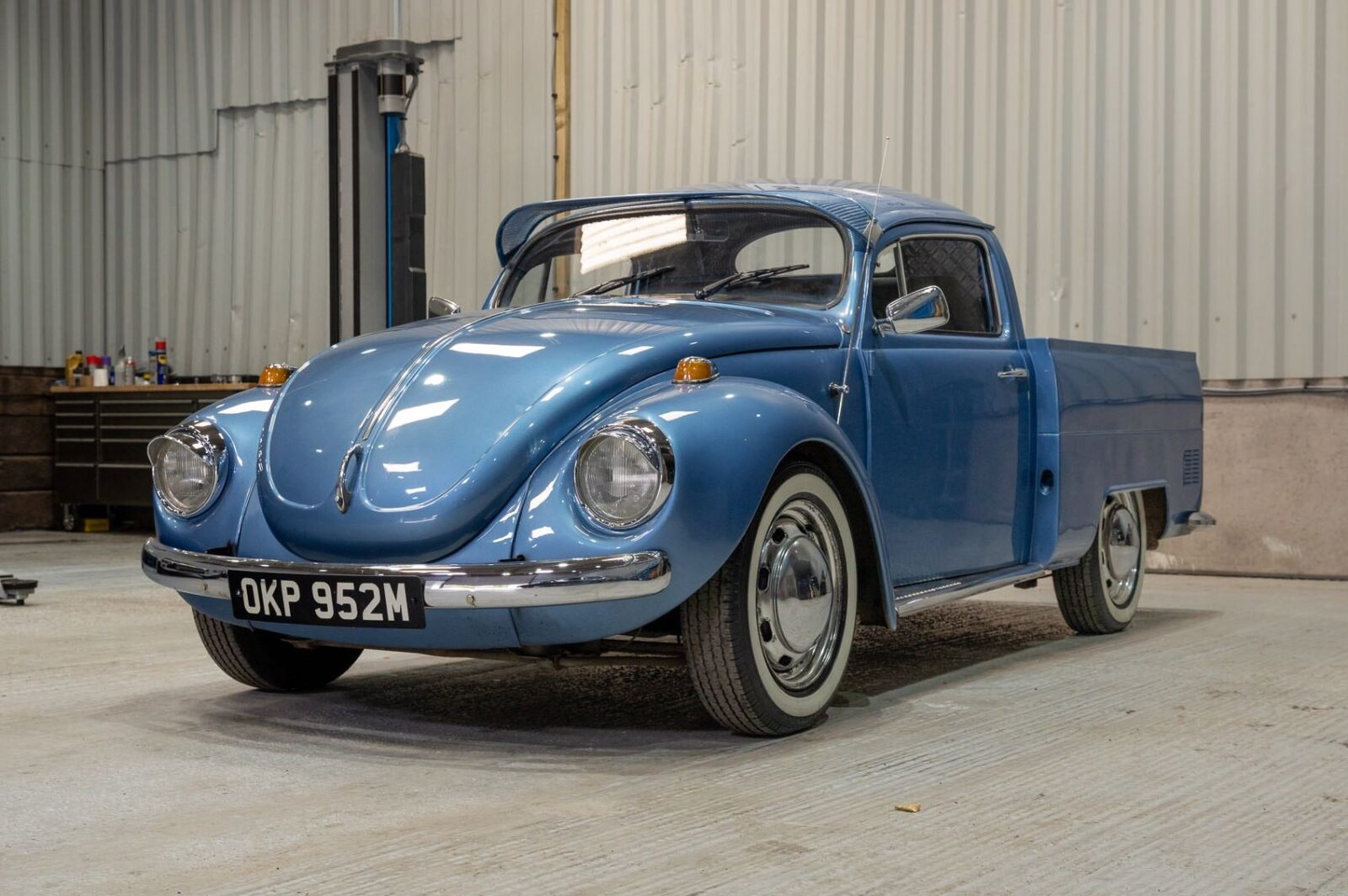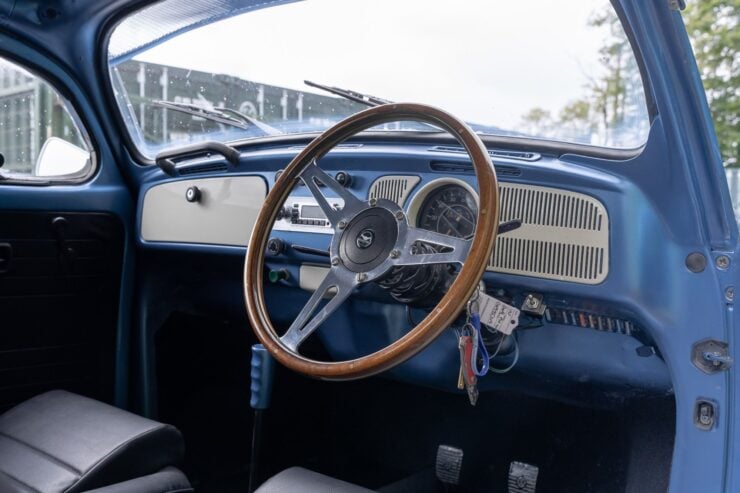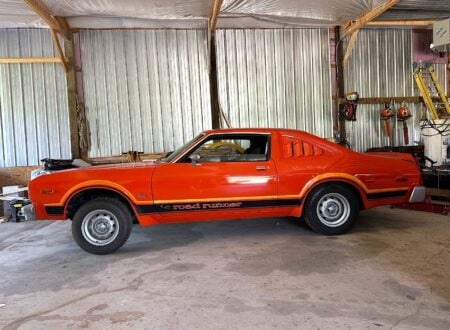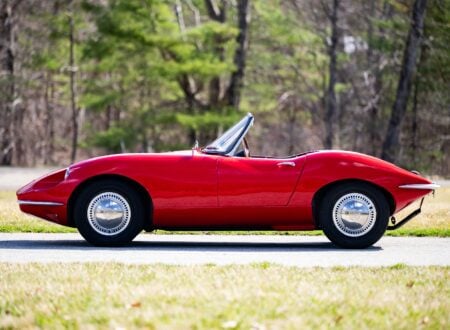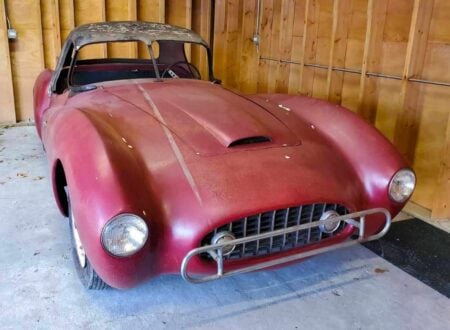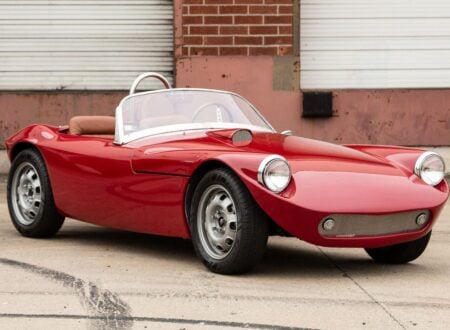The Volkswagen Beetle overcame its ignominious beginnings as one of the The Third Reich’s pet projects to become one of the most beloved automobiles of all time. Over 21 million of them were manufactured in a wide array of configurations – but the factory never offered a pick up truck version.
The Beetle you see here was built to right this historic wrong, taking a standard 1971 Volkswagen Beetle, the pick up truck back from a Type 2, and the engine from a Type 3 to create a 100% VW pick up that could feasibly have been built by the German automaker back when the car was in production.
Fast Facts – The Volkwagen Beetle Pick Up Truck
- This unusual Beetle is the result of a full ground-up custom rebuild, it has a chopped roof, a Type 2 tray back rear, a rebuilt 1.6 liter Type 3 engine with twin Weber ICT 34 carburetors, and custom suspension.
- VW never offered a tray back version of the original Beetle, however this vehicles gives a good idea of what it might have looked like.
- The project to build this car cost over £25,000, or approximately $34,300 USD.
- The car is currently being sold out of the United Kingdom, where it’s 100% road-legal.
The Volkswagen Beetle
Almost everyone knows the origins of the Volkswagen Beetle, it was designed by Ferdinand Porsche as an affordable car for the masses, a project that was the brainchild of Adolf Hitler. The company name “Volkswagen” as in German it means the “people’s car.”
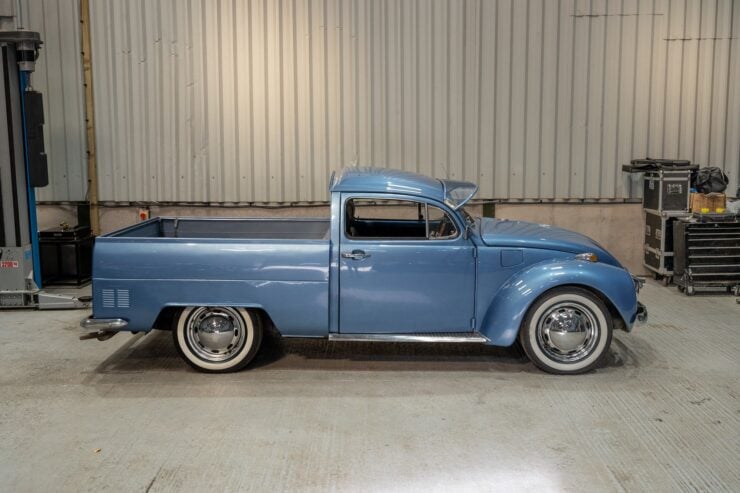

After WWII the brilliance of Porsche’s design became clear and production of the car would skyrocket. Factories around the world would build Beetles in countries as far afield of South Africa, Thailand, Mexico, Nigeria, Venezuela, Finland, Brazil, and many others.
The Beetle became a Hollywood icon thanks to the Herbie movies, and the car fulfilled an essential role as cheap daily transportation for countless millions of people, both in developing countries and the industrialized west.
Today there are still millions of them on the road around the world, many have been customized into race cars, novelty cars, kit cars, and the Beetle forms the underpinnings of the legendary Meyers Manx beach buggy.
Volkswagen Beetle Pick Up Truck
Volkswagen developed a few other models from the original Beetle (the Type 1), including the Type 2 which is often called the VW Bus or the VW Kombi, and the Type 3.
The team behind the creation of the unusual Beetle you see here wanted to create a vehicle that looked like what Volkswagen themselves might have created if they’d ever decided to build an official Beetle pick up, or a “ute” as they call it in Australia.
They started with a tidy 1971 Beetle, once they had the floors replaced and other restoration jobs completed they set to work chopping the roofline to give a lower profile, then they fitted custom glass to all four corners.
The original suspension was swapped out for lowered McPherson Struts up front and Megabug coilover springs and shock absorbers in the rear. A custom interior was fitted, with black bucket seats and a wood-rimmed Mountney steering wheel.
The original engine was replaced with a rebuilt and re-tuned 1.6 liter Type 3 “Suitcase” engine with twin Weber ICT 34 carburetors, mated to a 4-speed manual gearbox. That tray back rear end was sourced from an original VW Type 2 Pick Up, and it was all finished off with Gemini Blue Metallic.
This unusual Beetle pick up is now for sale through Collecting Cars, if you’d like to read more about it or register to bid you can click here to visit the listing.
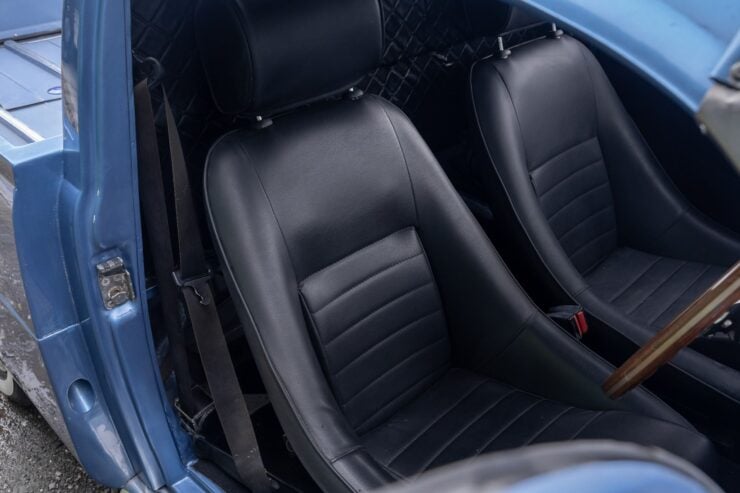
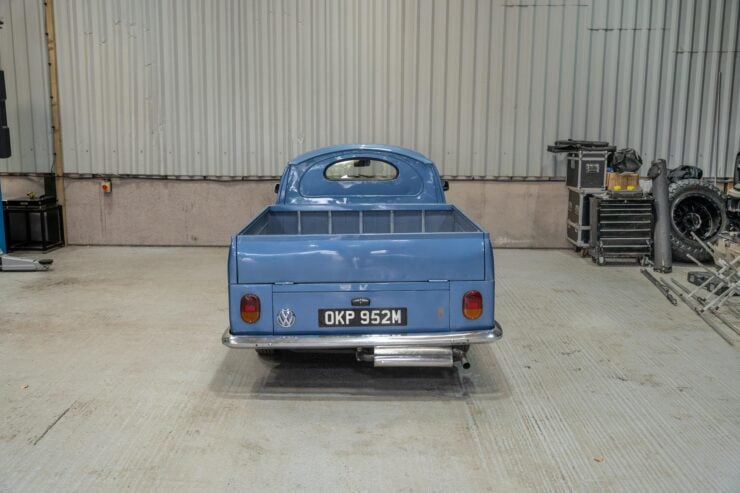
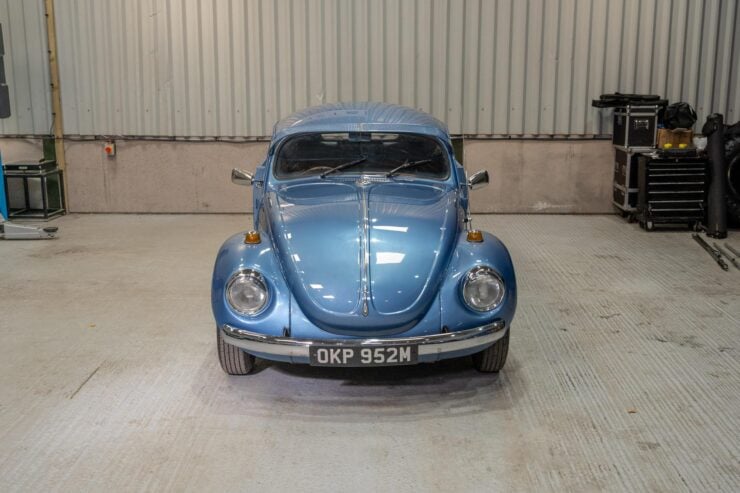
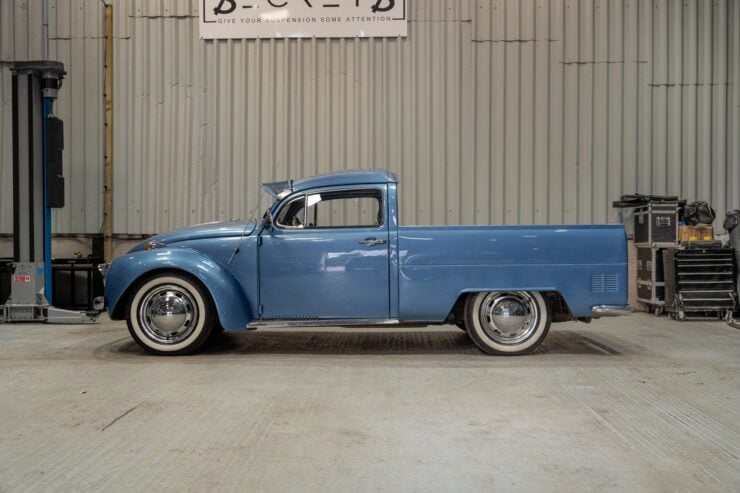
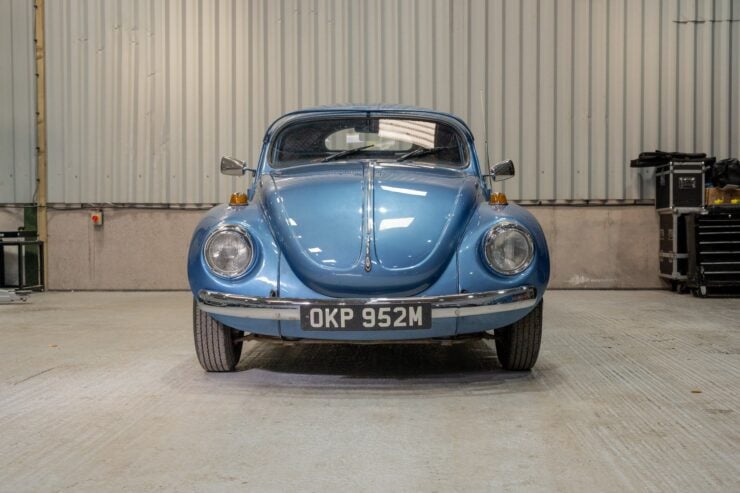
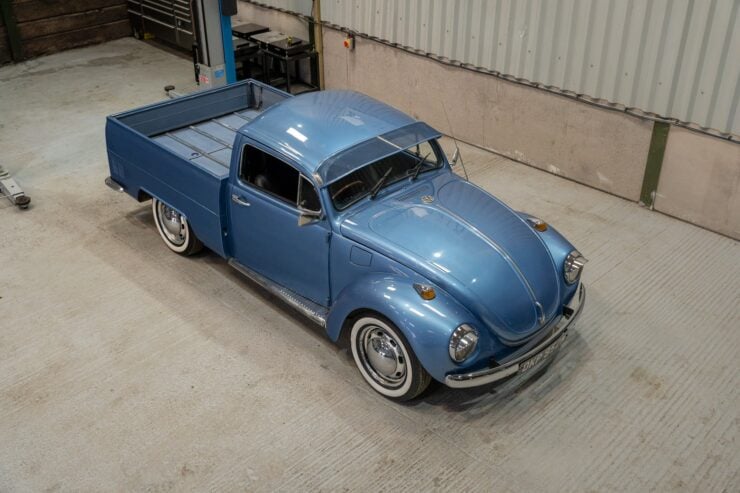
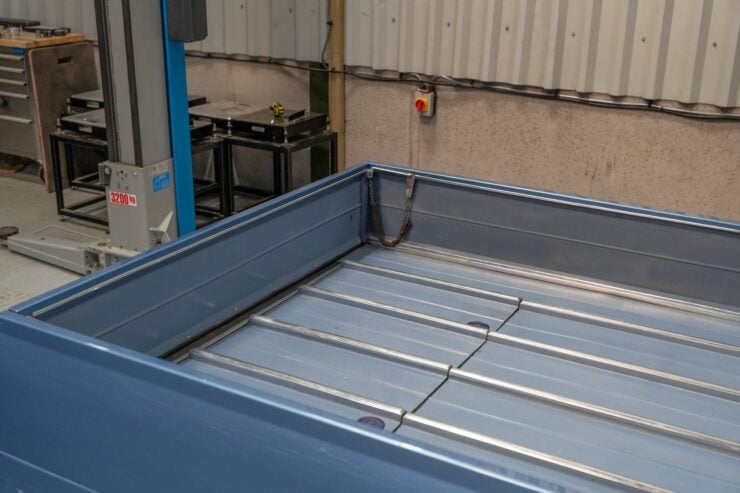
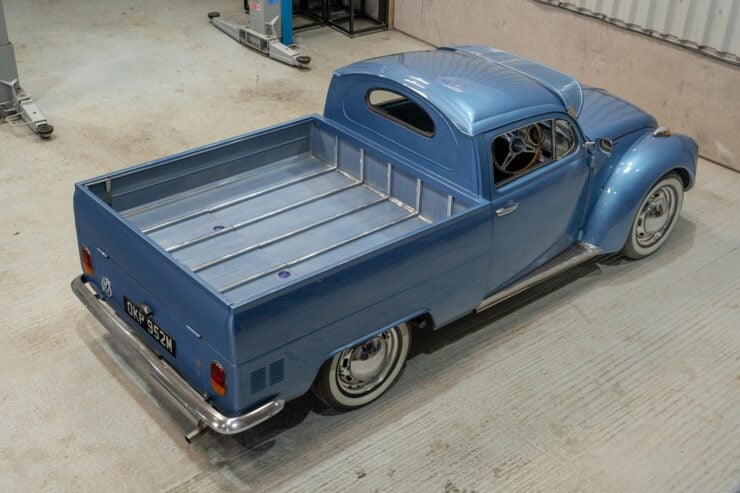
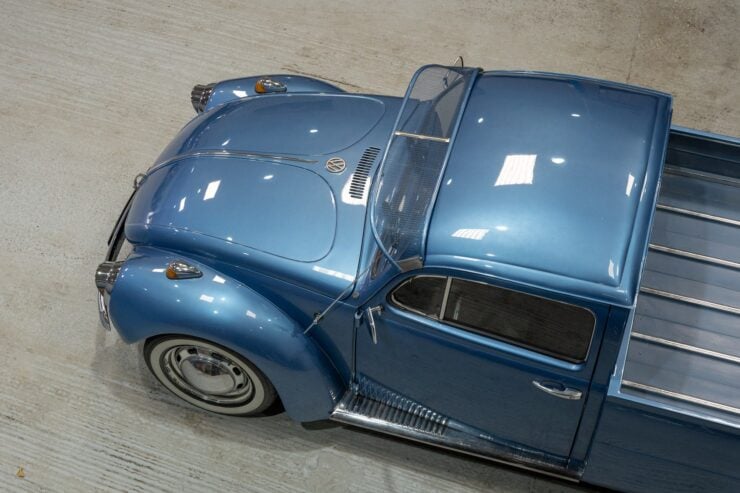
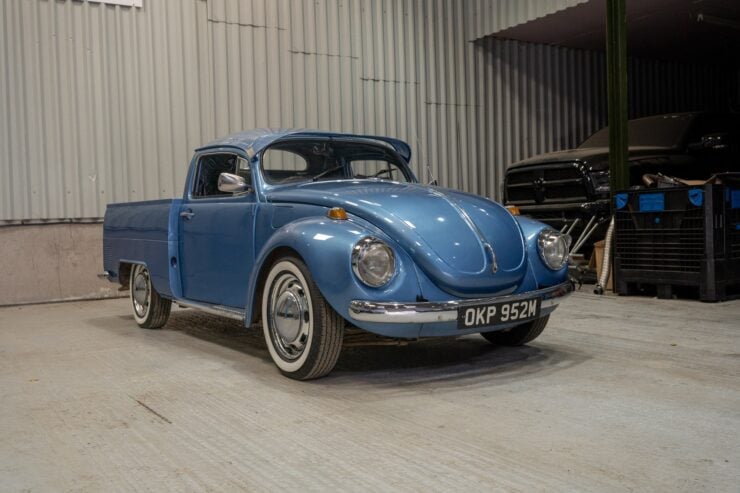
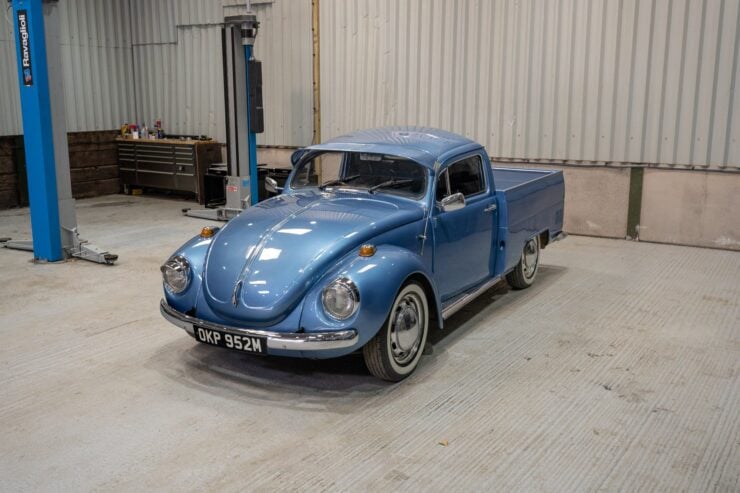
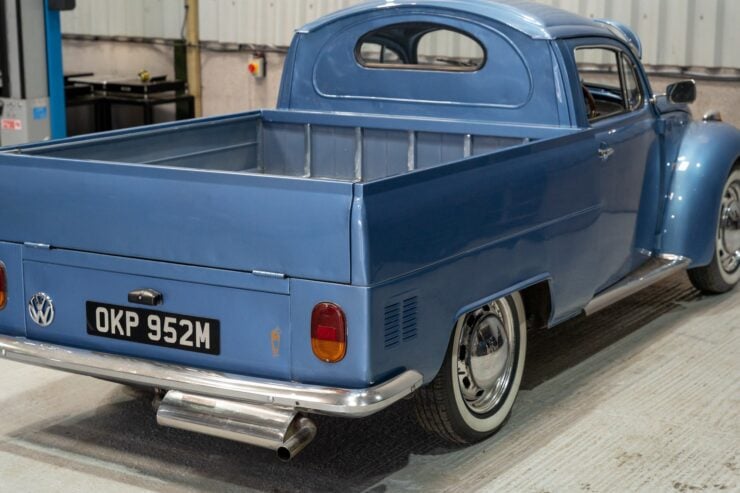
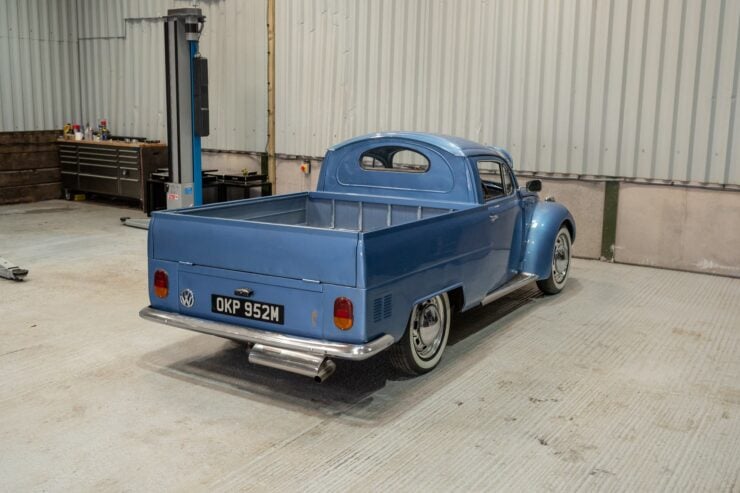
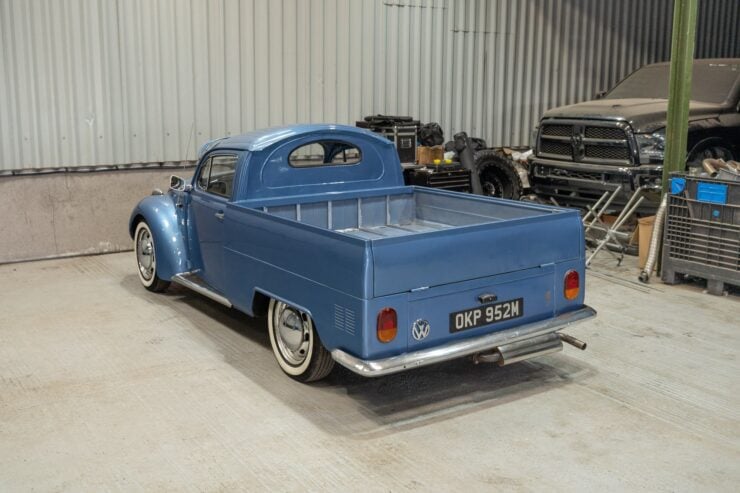
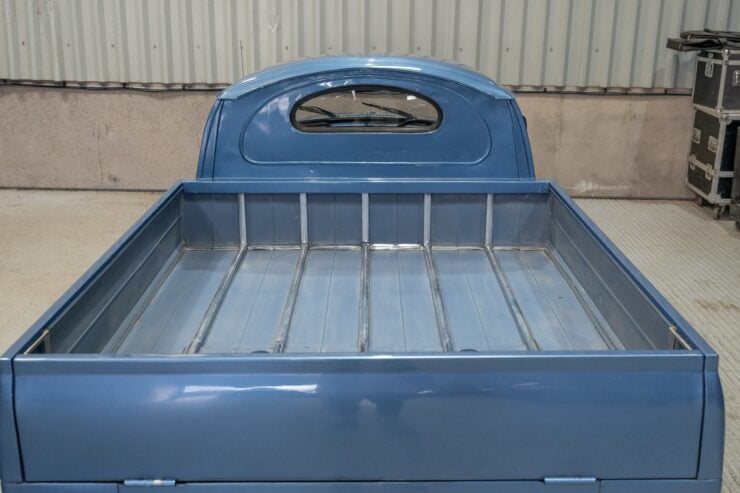
Images courtesy of Collecting Cars

